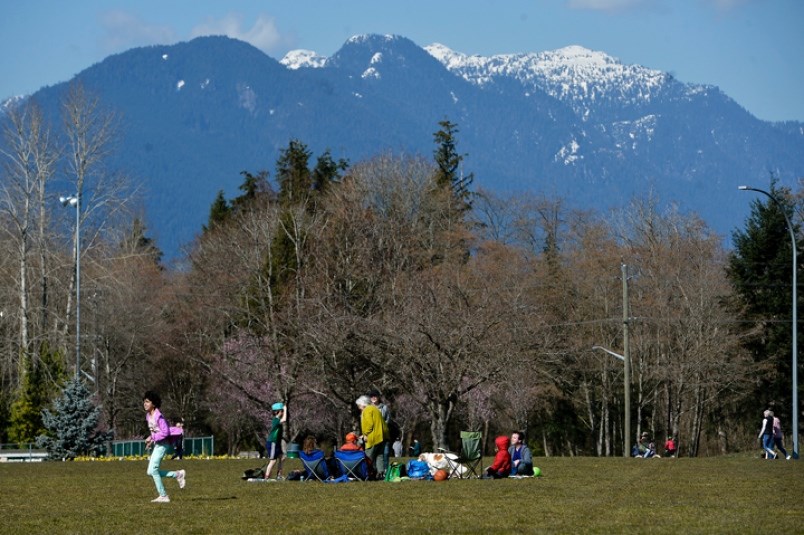By Dr. Davidicus Wong
The COVID-19 pandemic is the single-greatest threat to the health and well-being of you and those you love.
And it is at times of crisis that each of us must summon the courage to say and do what is needed.
In spite of clear, sensible and evidence-based advice from our Provincial Health Officer, Dr. Bonnie Henry, and Minister of Health, Adrian Dix, there are still too many among us who recklessly ignore the warnings to avoid close physical contact with others and therefore put all of us at risk for illness - and some of us for death.
It takes every individual in a village to care for the whole village. You are not just an individual; you are part of a greater whole – part of a family and a community of friends, a member of your neighbourhood and a citizen of this town and province; part of our nation and all of humanity.
With this health-care and economic crisis, we have seen how we each are so vulnerable and dependent on what happens around the globe and in our communities. Your well-being and the well-being of all others are dependent on what we each do.
Let us all do what needs to be done.
Please follow these simple instructions: 1. Stay at home. 2. Keep your distance. 3. Wash your hands. 4. Spread the word – not the virus.
1. Stay at home
Remain in your home as much as possible, leaving only if you have to work or to buy groceries. When you do go shopping, make a list (so you only need to go once a week) and send only one family member. You don’t need to wear a face mask but follow #2 and #3. Don’t bring any germs home.
Practice good hygiene at home. Wash what you bring into your home. Don’t share drinks. Use serving utensils with shared dishes. Wash your hands before preparing food and eating.
Reframe the circumstances that most of us share. You get to stay at home with your loved ones. You now have the time to use social media responsibly, reconnect with friends and family around the world and share the message that we all have an important role in this crisis.
2. Keep your distance.
Social distancing is a social responsibility.
It will protect you and your loved ones. It will save lives of those you know and many you do not. Think of your elderly neighbour or vulnerable family members.
I prefer the term physical distancing and this means keeping your distance from other people to reduce exposure to airborne infective droplets. That distance is 6 feet or two metres – roughly the length between your fingertips with both arms stretched to the sides or the width of a car.
Don’t gather in groups, meet a friend for coffee, have parties indoors or outdoors or play sports such as basketball, tennis, volleyball or dancing. You can safely go for a walk or cycle (if you are not self-isolating in the 14 days post international travel or after potential exposure to COVID-19), but keep that six-foot distance from others.
You can still socially connect by phone, social media and video.
Some of us have to go to work each day because we’re part of the frontline.
My physician colleagues are still attending patients every day but we are only seeing patients in person when absolutely necessary. The majority of care family physicians have been providing over the past two weeks has been virtual – by phone or video conferencing.
3. Wash your hands.
The novel coronavirus can also be transmitted with contact with respiratory secretions (i.e. mucous, phlegm and saliva) that can be passed hand to hand and from objects touched by an infected person such as door handles, elevator buttons and counter tops.
Washing your hands correctly before you eat and before you touch your eyes, nose and mouth will reduce your exposure.
The advice to sing happy birthday twice or count 20 seconds is incomplete. It’s like singing Barney’s clean up song while dancing and not tidying up at all – or humming while brushing only your two front teeth.
Use an alcohol-based hand sanitizing solution or soap and water. Ensure that you thoroughly rub all sides of every finger, getting in the space between all fingers and covering the entire palms and backs of both hands at least up to your wrists.
4. Spread the word – not the virus.
What you do and don’t do today will save lives or result in more suffering and death.
What we do individually and collectively today will determine our future.
Our future is in your hands.
Dr. Davidicus Wong is a family physician. His Healthwise Column appears regularly in the Burnaby NOW. For more on achieving your positive potential in life, read his .
Read more from the



